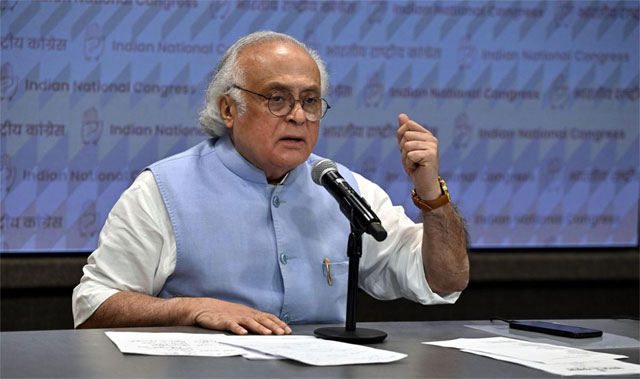Daijiworld Media Network - New Delhi
New Delhi, Nov 22: Congress general secretary Jairam Ramesh on Saturday delivered a scathing critique of the newly enforced labour codes, arguing that the government has simply bundled 29 existing labour laws into four codes without addressing the pressing needs of India’s workforce. He asserted that crucial demands—such as a national minimum wage of ?400 per day and an urban employment guarantee—remain unmet.
Ramesh further noted that several rules under the new codes have not been fully notified, making complete implementation impossible despite the government’s claims of ushering in a landmark transformation.

The four labour codes—covering wages, industrial relations, social security, and occupational safety—came into effect on November 21, marking the most sweeping revision of India’s labour laws since Independence. The government has promoted them as measures to simplify compliance and enhance the ease of doing business. However, trade unions fear that the overhaul may dilute essential worker protections.
Posting on X, Ramesh wrote that repackaging 29 laws into four codes is being “marketed as revolutionary reform,” even though the accompanying rules are still pending. He questioned whether the new framework meets the five core demands outlined under the Congress’ Shramik Nyay initiative.
These demands include:
• A national minimum wage of Rs 400 per day, applicable to schemes like MGNREGA.
• A Right to Health law offering universal coverage worth Rs 25 lakh.
• An urban employment guarantee act.
• Comprehensive social security for all unorganised workers, including insurance coverage.
• An end to contractual employment in key government functions.
Ramesh also cited progressive measures taken by Congress governments, such as Karnataka’s gig worker welfare legislation introduced in 2025 and Rajasthan’s pioneering framework implemented in 2023. He argued that these state-level initiatives represent genuinely forward-looking reforms that the Centre has failed to replicate.
He concluded by urging the Modi government to “learn from Congress-led states that have delivered worker-centric laws suited for the 21st century,” reiterating that the new labour codes fall short of ensuring meaningful justice for India’s workers.